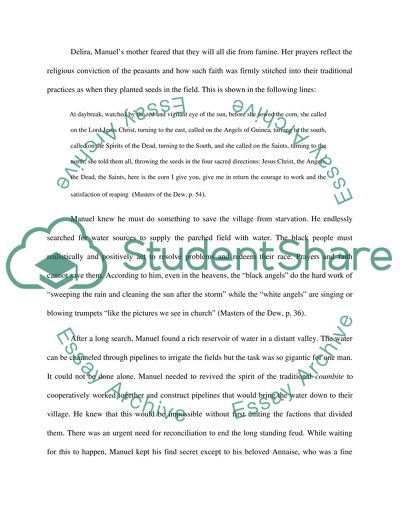Cite this document
(“Masters of the Dew By Jacques Roumain Essay Example | Topics and Well Written Essays - 1000 words”, n.d.)
Retrieved from https://studentshare.org/literature/1425931-masters-of-the-dew-by-jacques-roumain
Retrieved from https://studentshare.org/literature/1425931-masters-of-the-dew-by-jacques-roumain
(Masters of the Dew By Jacques Roumain Essay Example | Topics and Well Written Essays - 1000 Words)
https://studentshare.org/literature/1425931-masters-of-the-dew-by-jacques-roumain.
https://studentshare.org/literature/1425931-masters-of-the-dew-by-jacques-roumain.
“Masters of the Dew By Jacques Roumain Essay Example | Topics and Well Written Essays - 1000 Words”, n.d. https://studentshare.org/literature/1425931-masters-of-the-dew-by-jacques-roumain.


